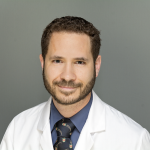Welcome and thank you for your interest in IAA Hartford County Division’s Regional Anesthesia and Acute Pain Medicine Fellowship. We invite you to learn more and take the next step in becoming a specialist in regional anesthesia, acute pain medicine, and orthopedic anesthesia.
Thank you for your interest. This comprehensive Regional Anesthesia and Acute Pain Medicine program is based at the Bone & Joint Institute at Hartford Hospital in Hartford, CT.
Our program currently accepts four fellows per year. he training program is 12 months long and is equally divided into four rotations:
Apply Now for the IAA Fellowship in Regional Anesthesia & Acute Pain Medicine, Hartford Division.
Email your CV and cover letter to the Program Director:
Kevin J. Finkel, MD, FASA
(860) 972-2117
kevin.finkel@iaapartners.com


Kevin J. Finkel, MD, FASA
Program Director, Hartford Division
Tel: (860) 972-2117
Fax: (860) 545-1784
Email Dr. Finkel
IAA Anesthesia Fellowship, Hartford Division
Attn: Kevin J. Finkel, MD
100 Retreat Avenue, Suite 900
Hartford CT 06106
©2025 Integrated Anesthesiologists Association All Rights Reserved. PRIVACY POLICY